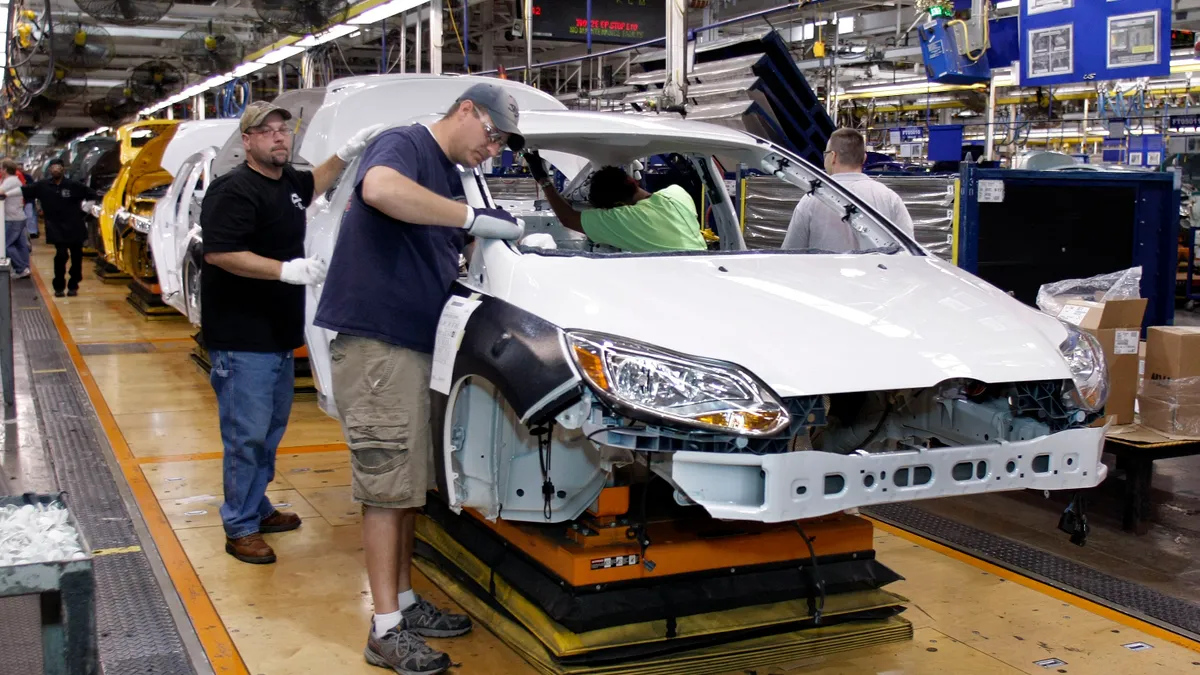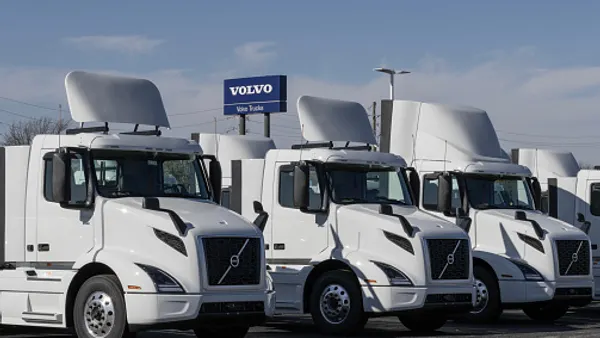Dive Brief:
- Eighty percent of companies are passing on rising costs to consumers as they adjust to a surge of inflation to a 30-year high, according to a Federal Reserve survey of CFOs.
- Nearly 90% of companies said they face extraordinary cost increases because of supply constraints, with more than 60% expecting the trend to persist at least into the fourth quarter of next year, according to the survey last month of 1,104 CFOs across 14 sectors.
- Companies are absorbing higher prices by reducing profit margins, cutting costs, substituting or eliminating products, adding contingency clauses to contracts and turning down work, according to the survey by the Fed district banks of Richmond and Atlanta and the Fuqua School of Business at Duke University.
Dive Insight:
Companies face "widening constraints on labor supply and intensifying supply chain disruptions that are showing up as rising costs that could feed through to higher prices," Fed economists said in an analysis of the survey. "Together, these obstacles to production appear to be taking a bite out of growth that is likely to last well into next year."
Tight supplies have pushed up the prices companies pay for wholesale goods as the economy storms back from lockdowns and a pandemic-induced recession.
The Producer Price Index for final demand, a measure of what suppliers charge, soared 8.6% in October from the prior year, according to the Labor Department. That was a record jump in a series of data first published in 2010.
Supply chain issues are weighing on sales, with 55% of CFOs reporting lost or delayed sales equivalent to an average of about 5% of 2021 sales revenue, according to the survey. Smaller companies reported an average 7% reduction in sales revenue.
Seven out of ten companies have struggled to adjust to supply constraints that are increasing costs, delaying production and shipping, and impairing efforts to meet demand, the survey found.
In response, businesses are diversifying supply chains, attempting to increase inventories, switching to suppliers closer to the U.S. and moving products by air instead of by ship. Still, those adjustments "will likely increase the cost of production over a longer period of time," the economists said.
CFOs also struggle to meet demand because of labor shortages, with three out of four facing difficulties in hiring, according to the survey.
More than 80% of executives reported raising pay to attract labor, and one-third are considering replacing workers with automation, the survey found.
Small business owners last month pushed up wages at a record annual rate of 4.1%, according to an index of payroll data from 350,000 companies. Average hourly earnings at businesses with fewer than 50 employees rose last month to $29.88, a gain of $1.17 compared with November 2020 and the biggest percentage increase since the start of the data series in 2011, according to the Paychex | IHS Markit Small Business Employment Watch.
Increased prices for everything from logistics to supplies leaves companies little option but to pass on higher costs.
"One unique aspect of these supply shocks is that firms do not appear to have a release valve for building cost pressures," economists wrote. "After squeezing profit margins, the only place these pressures can go is into higher selling prices."















